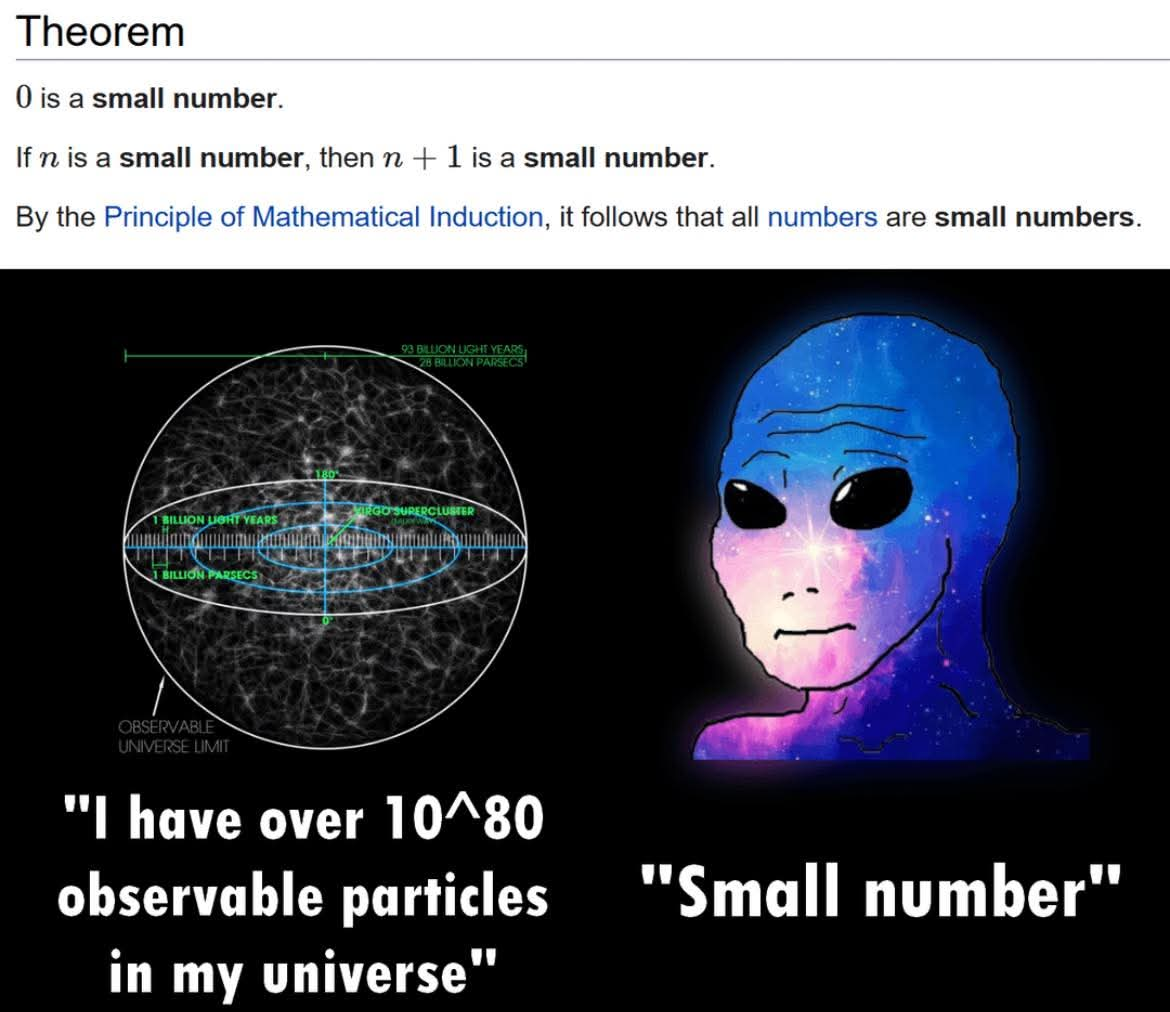Theorem - All numbers are interesting
Demonstration:
- 0 is interesting
- if n is interesting, n+1 is either interesting or not interesting.
-- If n+1 is not interesting, we take interest in it as it it the smallest non-interesting number. - Therefore, n+1 is interesting
By induction, all numbers are interesting
